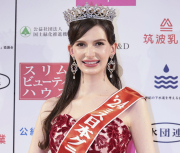
Cheyenne Hunt, a 26-year-old first-time candidate running for Congress, recently took to TikTok to share a glimpse of the harsh realities of campaigning with her 91,000 followers. In her video,
Hunt emphasized the challenges she faces, but her main message was the pride she felt in displaying her first campaign banner in her office.
"Our tiny little office has its first piece of decor," she remarked. "It just feels really real."
Before entering the political arena, Hunt had amassed a substantial following on TikTok, where she discussed current events, political issues, and her career as a progressive attorney. With over a year remaining until the 2024 general election, her TikTok account has become an integral part of her campaign strategy.
"I believe it's a critically important skill to be able to have conversations with people there," Hunt, who is running against Republican Michelle Steele in California's Orange County, a district won by President Biden in 2020, explained to NPR. "If it's a tool in our tool belt, then I'm absolutely going to use it."
Hunt is not the only TikTok influencer transitioning to a political candidate. Several young Democrats with substantial followings have recently launched campaigns for state and federal offices. For instance, Isaiah Martin, a 25-year-old candidate, is running for Congress in Houston, Texas, with over 98,000 followers. Averie Bishop, a 27-year-old former Miss Texas, is competing for a seat in Texas' state House and boasts more than 836,000 followers.
The TikTok Trend This trend comes more than three years after TikTok became highly popular in the United States, particularly among younger Americans. However, the approach to TikTok by national Democrats remains uncertain, mainly due to the platform's limited reach within the party.
Moreover, lingering national security concerns regarding ByteDance, the Chinese company that owns TikTok, continue to deter an official presence from the White House. The app is banned on government devices, and President Biden's campaign is following a similar stance as he seeks re-election.
Top-Down Strategy National Democrats are primarily looking for alternative ways to engage with voters online, particularly millennials and Gen Z, who will make up a significant portion of the electorate in the upcoming election. Rob Flaherty, Biden's Deputy Campaign Manager and former White House director of digital strategy, stated that whether or not the campaign has a TikTok account is not a crucial element of their strategy.
Instead, their approach focuses on expanding Biden's influencer network. Flaherty explained, "If you could tell me I had a choice between an account that was producing owned content or 100 accounts that were people saying good things about Joe Biden on TikTok, I would take 100 people saying good things about Joe Biden on TikTok a million times out of a million."
Throughout Biden's first term, the White House has engaged with young influencers and content creators with substantial followings on various social media platforms, including TikTok, Instagram, and YouTube. They have held briefings and invited these creators to events promoting policy achievements. In preparation for the 2024 campaign, this strategy will be further expanded, with a focus on partnering with both nationally recognized figures and regional and local influencers.
The cultural influence of TikTok played a role in shaping Biden's approach to social media over the past year. Flaherty stressed the importance of communicating authentically in ways that resonate with young people while maintaining the president's voice.
Embracing a Different Approach NPR's estimate suggests that less than 0.05% of Congress has a congressional or campaign TikTok account that has posted within the last 30 days, with no active, verified Republican accounts on the platform. Digital strategists emphasize the need for content that deviates from traditional political messaging, highlighting the importance of producing engaging and entertaining content that aligns with TikTok's unique style.
Annie Wu, who led Pennsylvania Sen. John Fetterman's social media strategy in 2022, stated that TikTok audiences seek content specifically tailored to the platform's culture, not merely repurposed ads or tweets. Wu managed Fetterman's TikTok account during the midterm elections, where they combined comedic videos with more serious, direct-to-camera messages, reaching millions of views.
Now, several elected officials in both the House and Senate are incorporating TikTok into their communication strategies. For instance, Rep. Robert Garcia, D-California, posted a humorous video poking fun at Republican infighting. Rep. Jeff Jackson, D-North Carolina, uses TikTok to directly address current political events, and his following has grown substantially.
Engaging with constituents through social media has become an integral part of the responsibilities for politicians like Jackson. It allows them to reach a broader and younger audience, which aligns with the preferences of today's voters.
Jackson emphasized that such engagement is not about political gain or loss but rather an essential aspect of his weekly job as a public servant, responding to the expectations of his constituents. Photo by Solen Feyissa, Wikimedia commons.






































